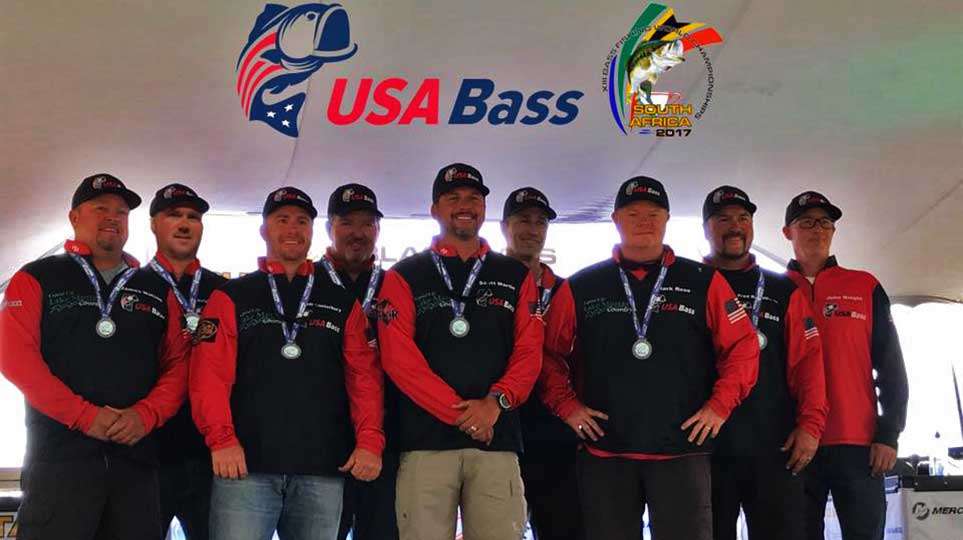
Taking the silver medal was exactly where Fred Roumbanis thought the U.S. should finish to move forward bass fishing’s bid to become an Olympic sport.
Roumbanis was part of an eight-man team that represented the United States in the 13th annual Black Bass World Championship in South Africa in early October. Behind the second-biggest bag, the team of Roumbanis and James “Worldwide” Watson propelled Team USA’s climb from fourth to second on Day 3.
“It’s was an incredible deal for us to get the silver medal,” Roumbanis said. “I think the chances of it being accepted by the Olympic committee will grow better with us not winning right now – we don’t want to go in and win all the time. I think it will help other countries’ confidence that they have a shot.”
Getting other countries fired up about bass fishing – America’s angling passion for decades – might just be the right tactic to garner Olympic acceptance, the Bassmaster Elite Series pro figured. The seeds have been set for the International Olympic Committee to consider bass fishing as a competitive sport. There are organizations around the globe working in that direction, which are being facilitated by the international tournaments.
“This (tournament) is part of the process of fishing sanctioned international events,” Watson said. “I was told the paperwork is in the Olympic committee’s hands, but there’s no guarantee it will become an Olympic event.”
Certainly not for Tokyo in 2020, said Tony Forte, vice president of U.S. Angling, a nonprofit out of Wisconsin that deals with all international American fishing efforts. If things go right, bass fishing could get in as early as the 2024 Olympics, and “if it’s going to happen, it’s going to happen by 2028,” he said.
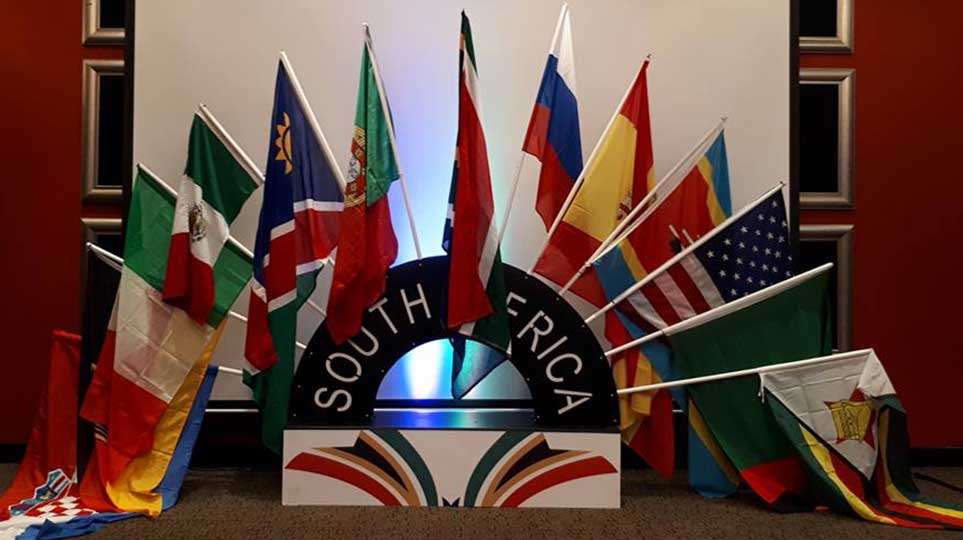
Can’t spell Olympics without alphabet groups
Anglers will have to down a lot of alphabet soup. The Confederation Internationale de la Peche Sportive (CIPS, or International Sport Fishing Confederation), a worldwide organization based in Rome, is among the groups working to put bass fishing in the Olympics.
Forte said CIPS has already become the member of Association of IOC Recognized International Sports Federations (ARISF), a prerequisite of the IOC. Those acronyms said they like what they’ve seen so far in bass fishing, but they want a broader distribution of the sport.
“It’s a process. It’s also somewhat of a political popularity contest,” said Forte, adding that a plan to give bass fishing a higher profile across the globe has begun. “They’re going to bring (the World Championships) to Mexico next year, back to South Africa the next and we’ve bid to host it in 2020.
“It’s our viewpoint that by 2020, it’s going to truly have an opportunity to mature as a sport.”
Forte agreed with Roumbanis’ assessment that American domination of bass fishing wouldn’t necessarily create growth.
“It can’t just be an American sport. That’s not how you quality a sport for the Olympic Games,” he said. “The way we are approaching it is we’re going to have an Asian presence, an African presence and” all the Americas.
“Currently the sport is very Eurocentric. Bass fishing specifically has taken hold in Italy, Spain, Portugal, and there’s a tremendous amount of interest from Russia, whose people take holidays in Italy to fish bass lakes.”
Getting Asia and South and Central America involved is in the works. The world record tying largemouth was caught in Japan’s Lake Biwa, and Forte noted largemouth are being stocked in more and more places. It’s also a good thing that peacock bass are a target species.
“One piece of the puzzle, we just now created a Pan American fishing organization that is going to focus on the Americas,” Forte said. “That event is actually slated for February on Lake Okeechobee.”
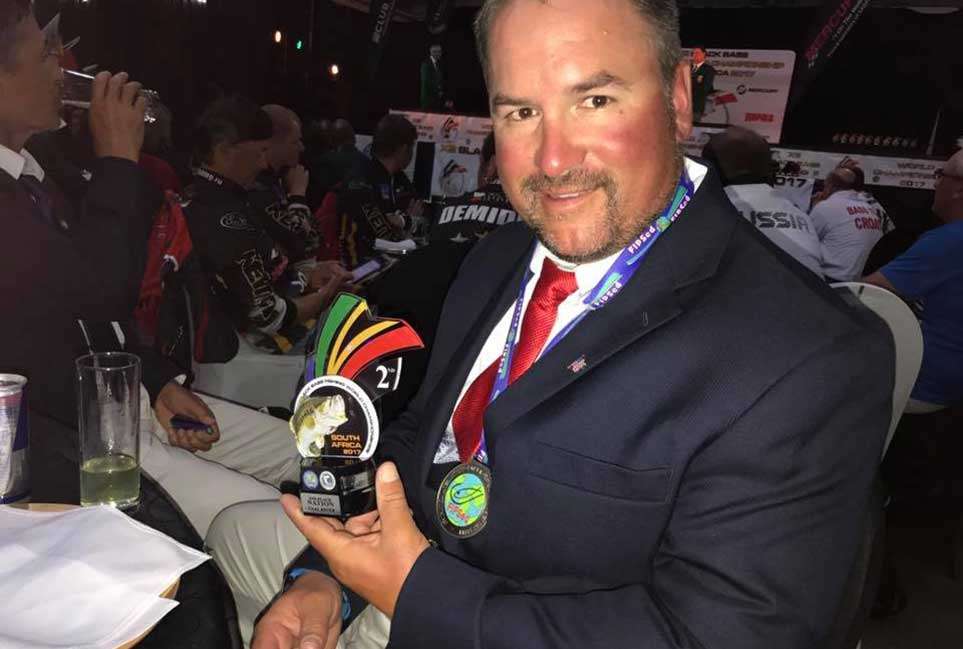
Currently, there are about eight countries hoping to send teams to that Florida tournament, but that could grow, Forte said. Growth is the main mission of U.S. Angling.
Forte said there are some simple things Bassmaster.com readers can do to help the effort, mainly follow U.S. Anglers on Facebook, and people can purchase a hat or jersey to show support, then come to the events.
“When we host in 2020 (South Carolina’s Lake Murray is a top consideration), we want it to be a big show,” he said. “We’ve got time to do that. B.A.S.S. will certainly be critical to this effort, and we’re going to make sure we have pros from both major organizations.”
What a long, strange trip
In the recent world championship, 13 countries competed, and that included Day 1 leader Germany, where bass are not native. Host nation South Africa, behind Justy Varkevisser, the “KVD of Africa,” won the event, with Italy finishing third and Spain fourth. The other competitors, in order of finish, were Zambia, Zimbabwe, Namibia, Germany, Swaziland, Mexico, Croatia, Portugal and Russia.
The U.S. sent an eight-man team. They assembled at the end of September in Atlanta for a 15-hour flight to Johannesburg.
“That was the worst part of the trip, that agonizingly long, swell-your-legs-up flight,” said Watson, who then enjoyed the confines of the host venue at the Emerald Casino and Resort on the Vaal River. “I just wish we had gotten there a day or two earlier to get more dialed into the river.”
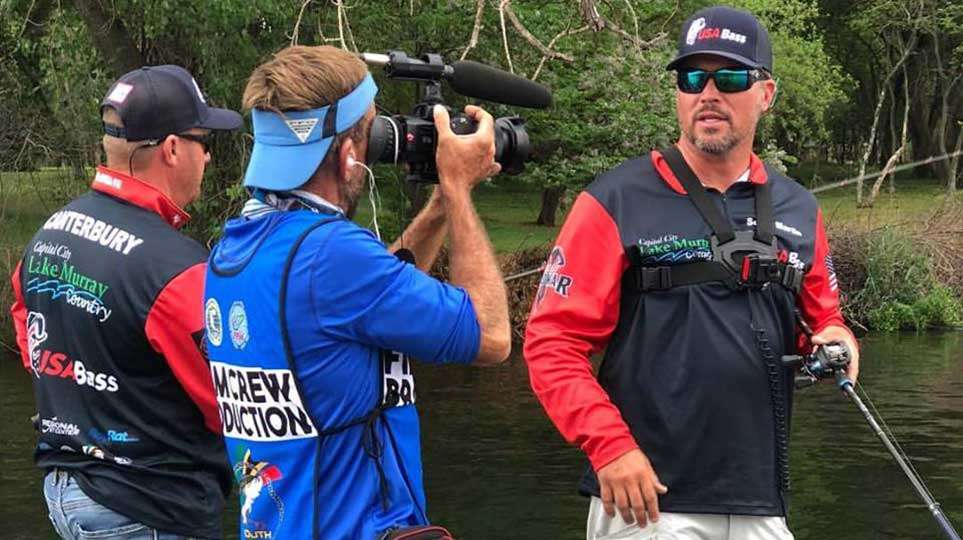
Scott Martin, whose popularity on YouTube will help spread information about the competitions, served as captain of the U.S. contingent. The team included fellow FLW anglers David Dudley, Scott Canterbury, Mark Rose, Lionel Botha and former Bassmaster Classic champion and Bassmaster Angler of the Year David Fritts.
The tournament format sent three two-man teams from each country out onto the Vaal for three days. The river, 30 miles long with no dangerous hippos, crocs or locks, was much like a southeastern U.S. fishery, Watson said.
“It was really narrow,” he said. “Dave Mercer could even swim across it without breaking a sweat. It had a lot of cover, from seawalls, some cattails, laydowns and all-pole boat docks. It was unusually clear water.
“We got on a jerkbait bite and a flipping bite on seawalls. It was very weird. You can be running a seawall that looks identical for a mile – no change in contour or depth – then all the sudden, for the next 50 yards, there’s all the fish.”
Watson was key in the American effort. Roumbanis practiced with him, saw that he had figured out how to entice big bites, and petitioned successfully to get him competing more.
“In practice, he caught a big one,” Roumbanis said. “He did his homework and came up with a jig that he tied, and sure enough, the last day he caught a 5-6 pounder that really boosted our bag. I caught a lot of sight fish, but James was the kicker man for us. You just know when someone is in the zone.”
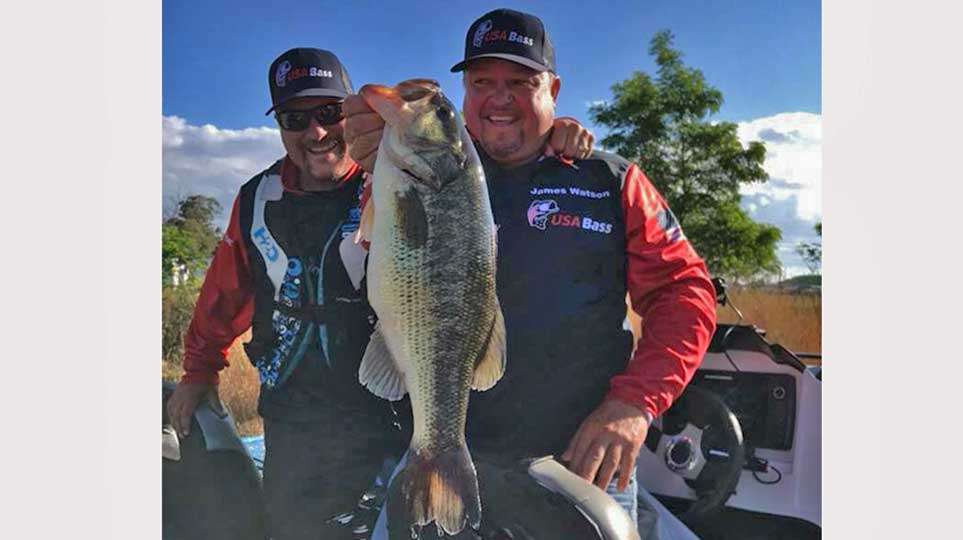
All the U.S. teams finished in the top 10 on the final day, and the team members performed well overall despite being strangers in a strange land and fishing in their first international event since 2009.
“Fred and I fished real well together,” Watson said. “Believe it or not, an FLW and a B.A.S.S. guy fishing together side by side in tranquility, in peace. It’s like Bill Taylor and Trip (Weldon) fishing a buddy tournament. We might get a gold medal before it’s all said and done.”
Boom Boom has been there before
There was no sightseeing on the U.S. team’s whirlwind schedule this time, but Roumbanis fished there in 2009 with Varkevisser and went on safari. Except for a leopard, he saw the other big five, a lion, rhino, elephant and cape buffalo.
“I got to see all that cool stuff. It’s beautiful when you can get away from that city,” he said, equating the terrain to Clear Lake, Calif. “When you get down in the southern lakes, it was amazing. I went with Juste and saw a super pride of lions.
“In a Triton with a 400 (hp motor), we ran right up to hippos, then when they went under we raced away, because they can sprint underwater and bite through a bass boat – chew right through the fiberglass.”
Roumbanis and Watson also left South Africa feeling better about living in America. While they never felt endangered, they heard horror stories and witnessed evidence of crime. Homes are fortresses with panic alarms, many communities are gated with hot wire atop walls and malls have armed guards.
“These guys live in fear every single day,” said Roumbanis, who didn’t see that on his visit nine years ago. “Now you can’t walk the streets.
“A lot of these people who are here protesting, before they speak their mind they should go sit in South Africa. They don’t know how good we’ve got it here.”
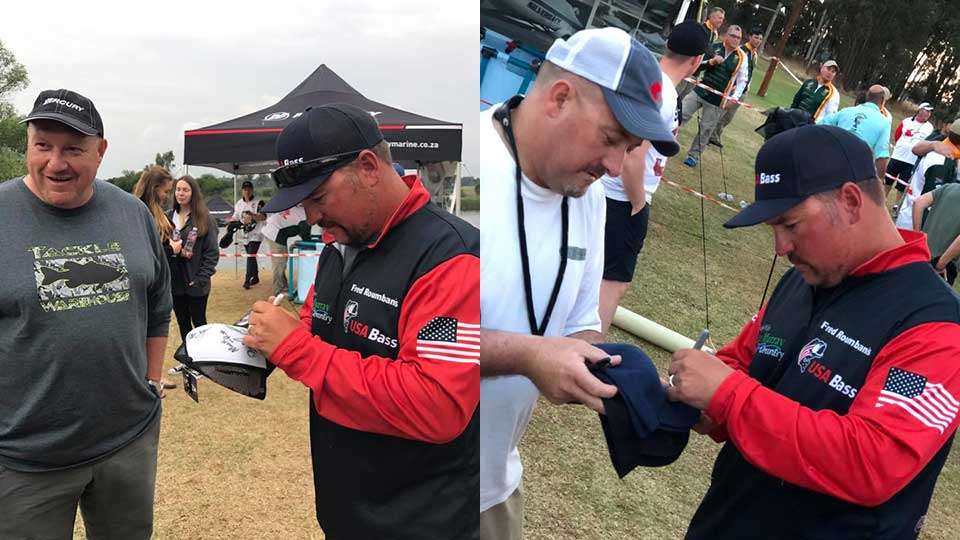
One huge positive was that bass fishing is huge there, and American anglers are recognized by old and young alike.
“I was floored by the amount of people who recognized us as professional anglers,” Watson said. “The guys who greeted us and the junior volunteers, they knew all of us by name, even more so than the kids who show up at our events to assist. Even the grown men, it shocked me how knowledgeable they were.
“Boom Boom was big time, because he’s been over there before. They recognized Scott Martin, the YouTube king. They definitely recognized me – because I’m worldwide.”
Both men left feeling a bond with their bass fishing brethren around the globe, and that they helped the effort to get their sport in the Olympics.
“The biggest thing is showing that the sport can go to the Olympics,” Roumbanis said. “I know it seems kind of far-fetched, but this tournament was ran very well.
“We had to wear coats and ties (like the Ryder Cup) at the award ceremony and flag ceremony. With all the countries, I thought it was really cool. Really patriotic for all of us. It really brought us all together.”

